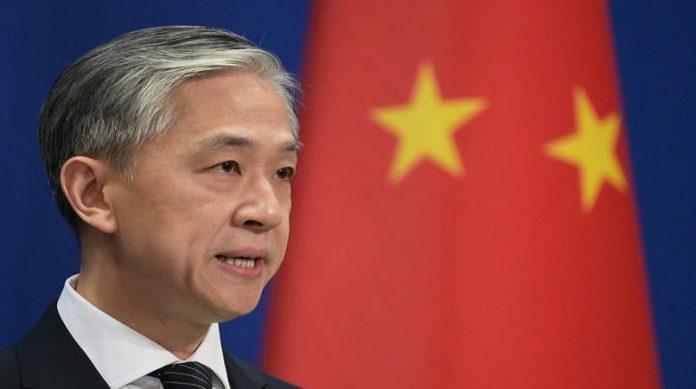China has signed a security deal with the Solomon Islands just days ahead of a visit by U.S government officials to the South Pacific country, exacerbating western fears over Beijing’s growing influence in the region.
Wang Yi, Chinese foreign minister, and his Solomon Islands counterpart Jeremiah Manele signed the deal “in recent days”, China’s foreign ministry said.
The agreement “proceeds in parallel with and complements the existing bilateral and multilateral security cooperation mechanisms of Solomon Islands”, Chinese Foreign Ministry spokesperson Wang Wenbin said at a daily briefing on Tuesday, without giving more details about the deal.
The announcement came just hours after the White House confirmed that Kurt Campbell, its top Asia official, and Daniel Kritenbrink, assistant secretary of state for east Asian and Pacific affairs, would visit the Solomon Islands this week.
Wang also questioned the U.S “motive” for sending top officials to the island countries later this week.
He cited an unidentified report saying that the last high-level visit of the U.S to a Pacific island country was 37 years ago by then Secretary of State.
“After so many years, senior U.S officials are making such a high-profile visit to the Pacific island countries. We cannot help but ask whether they really care about the island countries or have other motives,” Wang said.
“The U.S and other individual countries have been smearing China for no reason while creating the so-called trilateral security partnership, introducing nuclear proliferation risks and Cold War mentality into the South Pacific region, which seriously threatens regional security and stability,” said Wang.
“The label of undermining regional security suits them better,” he added.
“Deliberate attempts to inflate tensions and mobilise rival camps are also doomed to fail,” Wang said, when asked about the U.S. officials’ scheduled visit.
The visit, first reported by the Financial Times this month, follows concerns in Washington, as well as in Australia and New Zealand, countries that traditionally have close co-operation with South Pacific nations, over Chinese moves to step up its military presence in the region.
Beijing has claimed the security deal does not have a military element. But according to a draft document leaked last month by Solomon Islands opposition politicians, the pact could allow China to send police, paramilitary forces and soldiers to the country and have naval ships stop in its ports for resupply and crew transfers.
U.S officials have said the agreement appeared to leave the door open for China to send military forces to the islands, and expressed concern that such deployments could raise tension if done in a non-transparent manner.
It is unclear whether any changes were made to the text of the agreement before it was signed as neither China nor the Solomon Islands have published the final deal.
The Solomon Islands has had a security deal with Australia since 2003 when Canberra began a 14-year peace mission in response to ethnic riots that ended in 2017. When fresh unrest erupted in the capital Honiara late last year, Australia, New Zealand and Papua New Guinea sent forces to support local police at the request of the Solomon Islands. But soon after, China sent police to train local riot control forces for the first time.
That mission and the new security agreement are part of a wider Chinese push to step up political, economic and security ties with South Pacific countries that, while small and mostly impoverished, control huge areas of ocean. In 2019, Beijing took up diplomatic relations with the Solomon Islands and with Kiribati, both of which had previously recognised Taiwan.
The region has been recognised as highly strategic since before the second world war. Gaining a foothold in certain of its territories could allow China to spy on U.S forces based in Hawaii and Guam. Others could allow China’s forces to move closer to important sea lines of communication linking Australia with the U.S.
Australia said on Tuesday that it was “deeply disappointed” by the security deal, including the “lack of transparency” and “potential to undermine stability” in the region.
In a statement Canberra also welcomed what it said was a commitment from Manele that the Solomon Islands would “never be used for military bases or other military institutions of foreign powers”
Honiara’s parliament was told by Douglas Ete, chairman of the public accounts committee and lawmaker for East Honiara, that Chinese foreign ministry officials would arrive next month.
“The PRC foreign affairs is heading to Honiara in the middle of May to sign multilateral agreements and cooperations with the Solomon Islands government,” he said, referring to China.
Ete said the visit meant the two nations would increase cooperation on trade, education and fisheries, but added that he rejected the idea of the Solomons signing a security pact with China to set up a military base.
Prime Minister Manasseh Sogavare told parliament the security agreement would not include a Chinese military base.
SOURCE: FINANCIAL TIMES/TVNZ/REUTERS/PACNEWS














